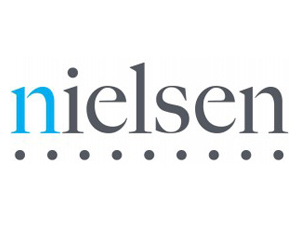The majority (56%) of New Zealanders feel optimistic about job opportunities and their personal finances, according to consumer confidence findings from Nielsen, a leading global provider of information and insights into what consumers watch and buy.
New Zealand consumer confidence decreased one index point to 99 in Q2 2014, six points higher than the same time period a year ago (see chart).

About 41% of Kiwis believe it will be a good time to buy items over the next 12 months. Job prospects, personal finances and purchase intent are the primary driver to consumer sentiment.
Managing Director, Nielsen NZ, Rob Clark said, “Compared to 2013, New Zealand had a relatively positive first half of the year. However, there’s still more people who see it as a bad time to buy things they want and need than good. Sentiment hasn’t translated to an increase in spend, instead New Zealanders continue to direct spare cash into savings and paying down debt.”
“It is no surprise that consumer confidence started to edge down over Q2. Interest rates started rising in March and will have brought about a degree of caution amongst borrowers”, said Nick Tuffley, ASB’s Chief Economist. “Even so, the survey results show a vote of confidence in NZ’s economic recovery with a further reduction in the share of respondents that believe the economy is in recession.”
New Zealand remained ahead of Australia, where consumer confidence has declined four points from quarter one’s record low (89 points) to 85 points. It’s the fourth straight quarterly decrease and the country’s lowest score since Nielsen began measuring consumer confidence in 2005. Confidence levels above and below a baseline of 100 indicate degrees of optimism and pessimism.
In conjunction with the second-quarter index release, Nielsen is unveiling a new interactive data visualisation tool based on nine years of historical global consumer confidence data, which spans 60 countries and represents a global online population of some 2 billion consumers. The Nielsen Global Consumer Confidence Trend Tracker allows users to select a variety of different data points related to consumer economic sentiment to create dynamic visualisations by region, country, issue, and time period.
Globally, consumer confidence increased one index point to 97 in the second quarter of 2014, the highest score since Q1 2007. This follows a two-point increase at the start of the year that marked the global index’s first return to pre-recession levels. Additionally, half of global respondents believed the job market would be good or excellent in the upcoming year, a one percentage point increase from the first quarter and a level not reached since 2007.
About the Nielsen Global Survey
The Nielsen Global Survey of Consumer Confidence and Spending Intentions was conducted May 12-30, 2014, and polled more than 30,000 online consumers in 60 countries throughout Asia-Pacific, Europe, Latin America, the Middle East, Africa and North America. The sample has quotas based on age and sex for each country based on its Internet users, is weighted to be representative of Internet consumers and has a maximum margin of error of ±0.6%. This Nielsen survey is based on the behaviour of respondents with online access only. Internet penetration rates vary by country. Nielsen uses a minimum reporting standard of 60% Internet penetration or 10M online population for survey inclusion. The China Consumer Confidence Index is compiled from a separate mixed methodology survey among 3,500 respondents in China.
About Nielsen
Nielsen Holdings N.V. is a global information and measurement company with leading market positions in marketing and consumer information, television, and other media measurement, online intelligence, mobile measurement, trade shows, and related properties. Nielsen has a presence in approximately 100 countries, with headquarters in New York, USA, and Diemen, the Netherlands. For more information, visit www.nielsen.com.



